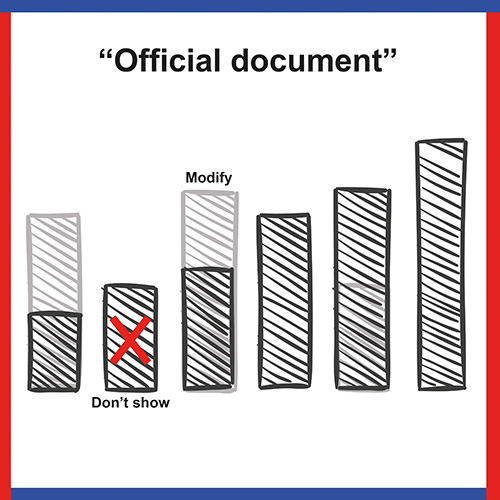Foreign policy a key topic in presidential race
November 1, 2016
From the safety of our troops abroad to the fear of terrorism at home, foreign policy has been a topic of critical importance in nearly every Presidential race in United States’ history. The 2016 campaign is no different, and brings two candidates to the table who have unique and dissimilar backgrounds in the area of foreign policy.
On the Democratic side stands Hillary Clinton, a longtime politician whose resume is backed by years of experience in the Senate and as the 67th Secretary of State during the Obama presidency. While boasting a background rich with experience in dealing with foreign affairs, in the eyes of some Americans her competency in this capacity has come under scrutiny following the 2012 Benghazi attacks on the American embassy, and the email scandal that followed.
Across the aisle is the Republican candidate Donald Trump, who unlike his opponent has never held political office, but boasts a strong history in business management. According to Forbes.com, Trump has a net worth of $3.7 billion. With his detractors questioning his qualifications for the job of President of the United States and his supporters pointing to his business ventures as evidence of experience with working out foreign deals, he seeks, just like his opponent, to sway undecided voters in the closing weeks of the campaign season with his position on foreign affairs.
Among the key issues to come out of this campaign season is relations with America’s rival nations, specifically Russia and China.
According to her website, Clinton seeks to “be firm but wise” in pursuing courses of action with these countries. In regards to trade deals with them, Clinton pledges to hold other countries, specifically China, to a standard that includes no currency manipulation, must create American jobs, and improve national security. To accomplish these goals, she plans to triple the amount of trade officers and appoint a trade prosecutor that will report directly to her. She also plans to review all current trade deals the United States has and entertains the idea of introducing tariffs and duties on countries who do not meet her standard of fair trade.
While addressing the same issues as Clinton, Trump aims to address trade issues from a different angle. Regarding trade with China, Trump, according to his campaign website, plans to instruct the Treasury Secretary to bring charges against the Chinese government for currency manipulation. Furthermore, he intends to bring cases against China both domestically and in the World Trade Organization for violations. Trump also expresses interest in the renegotiation of NAFTA, the North American Free Trade Agreement, and threatens withdrawal if it is not.
The two candidates do share several points of common ground, which include opposing the Trans-Pacific Partnership trade agreement, and the renegotiation of NAFTA, although Clinton has not officially added withdrawal from the agreement to her platform.
Perhaps the most contentious topic in the election concerns the rise of the Islamic State of Iraq and Syria (ISIS) and the measures to be taken in combating them.
Clinton has outlined her plan to oppose them to include the intensification of coalition air campaigns against them, and increasing support for Kurdish and other regional allies to bring the fight to ISIS and away from the United States. Domestically, she intends to create a surge in the intelligence community with the goal of better equipping U.S. security officers in their duties. Clinton also plans on creating stronger background checks for purchasing firearms, getting assault style weapons off of American streets and allowing the FBI to stop gun sales to suspected terrorists.
Trump’s overall vision for undermining ISIS abroad is largely similar to the policies proposed by Clinton, as he also advocates using coalition and NATO power to destroy their infrastructure and key leaders while continuing support for our partners in the region. His domestic policies markedly differ, though, and Trump proposes the establishment of a Commission on Radical Islam, which he intends to use to inform the public about the beliefs of radicalized Islam, red flags indicating someone is becoming radicalized, and to expose networks in America that support radicalization. Additionally, he promises to defeat it in the same manner the United States won the cold war: by defeating the ideology of radical Islam.
Among the final points of contention in terms of foreign policy in the election involves Iran and their procurement of nuclear weapons. During Clinton’s time as Secretary of State, President Obama signed an agreement with Iran which limits the number of centrifuges built by Iran and reducing its uranium stockpile in exchange for removal of sanctions. Clinton continues to support this agreement, but insists that its terms must continue to be met in order to go forward in the agreements original state. She also believes that there are more steps to be taken to confront other
issues concerning Iran, particularly its continued violation of U.N. sanctions on ballistic missile tests, and that additional sanctions could be imposed.
Trump vehemently opposes the nuclear agreement, which he called one of America’s worst deals. He cites his credentials for negotiation with Iran by saying, “In negotiation, you must be willing to walk”, and that, “When the other side knows you’re not going to walk, it becomes absolutely impossible to win.” He continues to express that if he is President, Iran will never acquire nuclear weapons.
While their means to the end might differ, the two candidates do seem to have the same end goal in sight – the safety of Americans at home and abroad. While both agree the threat of ISIS is real and a problem that must be dealt with, their plans for attacking this on the home front involve starkly different ideas and principles, and while most Americans can agree that Iran obtaining nuclear arms is far from being in our national securities best interests, to what extent they will draw the line and when is what separates the candidates, and what makes the issues so important to voters.




























